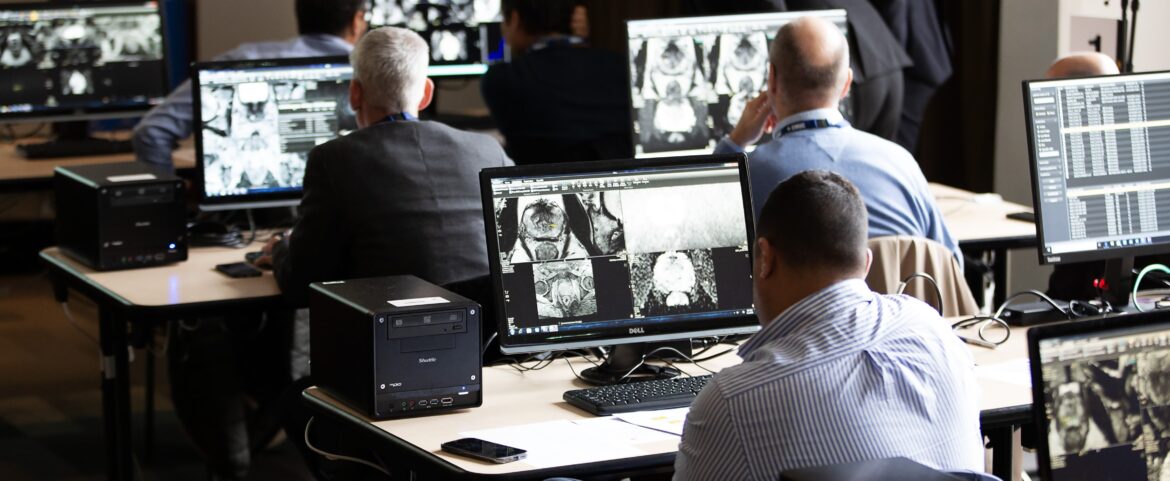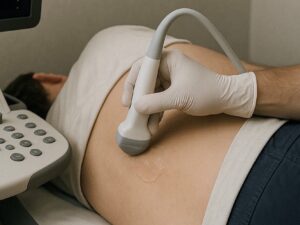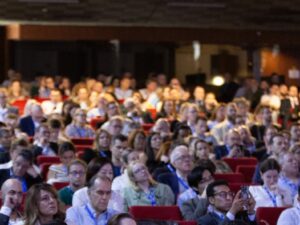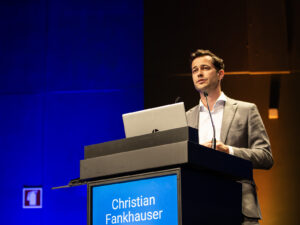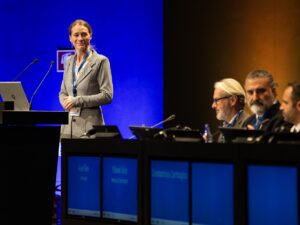The upcoming 16th European Multidisciplinary Congress on Urological Cancers (Lisbon, Portugal from 7-10 November) is a key learning platform not just for genitourinary oncologists, but also for radiologists, radiotherapists, nurses, pathologists, young doctors, residents, researchers and nuclear medicine physicians. The latest scientific advancements in onco-urology will be shared and critically reviewed in an expert multidisciplinary setting in a bid to produce better patient-orientated management. The scientific programme is packed with 14 Plenary Sessions, including state-of-the-art lectures and multidisciplinary case discussions on all aspects of onco-urology (prostate, bladder, kidney, and testicular and penile cancers). Read more below to explore other sessions featured in the EMUC24 scientific programme.
Pathology: Advances in AI
The European Society of Uropathology (ESUP) Symposium will be held on Thursday, 7 November. According to Chair Prof. Maurizio Colecchia (IT), “The use of artificial intelligence (AI) and subtype of deep learning has been enabled by using labelled big data along with greatly improved computing power and cloud storage in medicine. This is starting to have a positive impact for doctors, especially through rapid and accurate image interpretation. In the ESUP Symposium, experts will explain the application of artificial intelligence in genitourinary cancer pathology in specific topics such as tumour classification, slide triage, quality control and improving biomarker evaluation. The fully automated system using deep learning capable of classifying prostate biopsies following the Gleason grading system will be discussed. With the collaboration of the EAU Section of Urological Research, the scientific programme also includes presentations on spatial transcriptomics and genomics, morphometry and mechanical instability in bladder cancer and storage in fully automated biobanks for precision medicines.”
What’s new in imaging?
The EAU Section of Urological Imaging sessions takes place on Thursday, 7 November. Chair Assoc. Prof. Francesco Sanguedolce (ES) shares details of the hot topics that will be addressed: “There will be updates from the prostate cancer screening projects, including the challenges that a large-scale screening programme may face in the near future. There is a detailed session on everything a urologist needs to know about prostate biopsy, such as technique, approach, guidance, and strategy. The latest innovations in imaging-guided surgery for undertaking a more precise prostatectomy will be featured, as well as how new imaging modalities in bladder cancer are needed in the era of targeted treatment. Looking into the future, we review how artificial intelligence is going to assist urological cancers management. And as always, there will be an exciting abstract plenary with the presentation of high-quality studies selected for the EAU Section of Urological Imaging Best Abstract awards. During each session this year, particular emphasis has been put in guaranteeing plenty of time for discussion and interaction with the audience.”
Young Academics: The power of soft skills in research
A new addition to the EMUC programme this year is the “Soft skills” session designed together by the Young Academic Urologists (YAU), ESMO YOC (Young Oncologists) and Young ESTRO. According to Assoc. Prof. Juan Gomez Rivas (ES), “The session aims to enhance essential soft skills, provide guidance on career advancement, and promote effective presentation and communication of research. Through plenary discussions and brainstorming sessions, this session seeks to equip young professionals with the knowledge, skills, and strategies needed to advance their careers and contribute to the global healthcare community.”
Topics that will be covered include career opportunities as clinician-scientists in oncology, channelling your inner Da Vinci: the art of soft skills in urological oncology research (not robotic-assisted!), the importance of presenting your work at international meetings, how to write the perfect abstract, performing and reporting the perfect statistics, and how to present your project in an impactful way. The Soft Skills session takes place on Thursday 7 November from 16:00 – 17:30 CET.
Global health inequalities
On the morning of day four, Clinical oncologist Dr. Ajay Aggarwal (GB) will present an “out of the box” special lecture on global health inequalities, “Bridging cancer care disparities: Why politics, not science matters”. According to Dr. Aggarwal, “At present we spend billions on cancer research, however, in many countries, survival outcomes are stagnating or worsening post pandemic. Across all countries, the gaps in outcome between the wealthy elites and marginalised groups are increasing. This session will outline how politics, not science, ultimately will be the key to improving cancer survival in the next decade given most health budgets are falling in real terms. A clear societal strengthening agenda is essential as well as one that addresses the commercial determinants and political economy of cancer.”
Extra’s: Hands-on training, a workshop, and courses (for nurses too!)
There are Hands-on training sessions for Prostate MRI reading, MRI fusion biopsy, PSMA/PET image reading, and a FALCON workshop on optimal contouring for prostate, nodes and post-operative radiotherapy in prostate cancer. There are also two ESU courses, “Oligometastatic treatment in genitourinary tumours (bladder, renal, prostate)” and “Neoadjuvant and adjuvant treatment in genitourinary tumours”. Note: HOT, FALCON + ESU courses = Additional fee and registration is applicable.
A new addition this year are the two European School of Urology Nursing (ESUN) courses available for nurses. The first is on “Systemic treatment for prostate cancer: promoting wellness and improving quality of life and adherence”, and the second is on “Improving NMIBC patient pathways (incl. intravesical therapy and laser ablation)”. Note: a separate application is applicable for ESUN courses.
For more information, and to register, visit the EMUC website.

